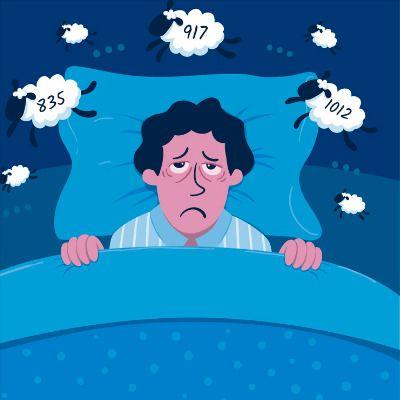Modalert 200 Tablet is a medicine used in the treatment of excessive daytime sleepiness (narcolepsy). It promotes wakefulness and helps you to stay awake. Thereby, reducing the tendency to fall asleep during the day and restoring the normal sleep cycle.
Avoid Putting on Extra Pounds:
Being overweight causes the symptoms of sleep apnea to worsen. One may experience improved respiratory function during sleep if they maintain a healthy body weight through regular physical activity and nutritious meals.
To facilitate sleep, consider assuming the supine position
When you lie on your back, sleep apnea is exacerbated because soft tissues, including your tongue, obstruct your airway. You may experience reduced interruptions in your breathing and improved ease of breathing while sleeping on your side.
Maintain a Straight Posture:
An approach to prevent the compression of soft tissues and the tongue into the airway during sleep is to elevate the head of the bed or utilize a wedge cushion. This facilitates breathing relief for individuals with sleep apnea and reduces the volume of their snoring.
Avoid consuming alcohol and sedatives
The symptoms associated with sleep apnea may be exacerbated by sedatives and alcohol, which relax the muscles of the pharynx. Avoid these substances while sleeping to reduce the risk of airway obstruction, especially in the hours preceding nighttime.
Five All-Natural Solutions for Sleep Disorders
The body’s own melatonin receptors control the body’s normal sleep-wake cycles. Melatonin pills are great for helping people relax and have a better night’s sleep, particularly if you suffer from jet lag or insomnia. For melatonin to work its magic, take it 30 to 60 minutes before you plan to turn in for the night.
Develop the Practice of Adequate Sleep:
Practice something calming before bed and maintain a consistent sleep schedule for improved rest. It is not advisable to use electronic devices, engage in vigorous physical activity, or consume large amounts of food in the hours prior to bedtime. Establishing a tranquil and undisturbed area for repose is equally crucial.
For ages, people have turned to chamomile, a natural treatment, to help them relax and get a better night’s rest. Chamomile tea’s sedative properties are attributed, in large part, to its constituents like aligning, which attach to brain receptors that promote the initiation of sleep. Some people find that drinking chamomile tea in the hours leading up to bedtime helps them relax and get a better night’s rest.
Utilize medication for continuous positive airway pressure (CPAP):
When treating sleep apnea, CPAP is the preferred method. Employ your CPAP machine on a nightly basis, as directed by your physician, in order to preserve an unobstructed airway and prevent respiratory interruptions during sleep.
One herbal medication that many people take to help them relax and get a good night’s sleep is valerian root. A neurotransmitter that aids in brain relaxation and sleep, it includes chemicals that raise GABA levels. If you’re having trouble sleeping, try taking a supplement containing valerian root before night.
Maintain CPAP equipment in a sanitary condition:
Regular cleaning and maintenance is essential for ensuring optimal performance of your CPAP machine and preventing the development of respiratory infections. It is imperative to adhere to the cleansing instructions provided by the manufacturer when maintaining the respirator, ducting, and humidifier components.
Natural sleep aids may help some people, but anybody with preexisting health issues or who is on medication should talk to their doctor before beginning any new supplement or herbal cure. The efficacy of natural sleep aids may be amplified when combined with good sleep habits including sticking to a regular sleep schedule, developing a soothing nighttime ritual, and making the most of your bedroom as a sleeping space.
Confront the problem of a congested nose:
Breathing becomes more difficult when the nasal passages are occluded, which may exacerbate sleep apnea. Consider employing a saline spray or a nasal decongestant to facilitate respiration during sleep.
Understanding these risk factors can help individuals recognize their susceptibility to sleep apnea and take proactive steps to mitigate their risk. If you or someone you know has one or more of these risk factors and experiences symptoms of sleep apnea, such as loud snoring, gasping for air during sleep, or excessive daytime sleepiness, it is essential to seek evaluation and treatment from a healthcare professional. Early detection and intervention can improve sleep quality, reduce health risks, and enhance overall well-being.
Abandon the habit:
Due to the constriction and irritation of the airway caused by smoking, sleep apnea symptoms may be exacerbated. Cessation of smoking may improve the symptoms of sleep apnea and overall respiratory health.
An important element for neurotransmitter regulation and relaxation, magnesium is a must-have for healthy living. Sleep problems including insomnia and restless legs syndrome may have a magnesium deficient component, according to research. If you’re having trouble falling or staying asleep, try taking a magnesium supplement or eating more foods that are high in magnesium, including as nuts, seeds, and whole grains.
Maintain Your Knowledge and Education
Ascertain the nature of sleep apnea, its clinical manifestations, and the available treatment options. Sustaining optimal sleep apnea management necessitates regular consultation with your physician and awareness of the most recent advancements in treatment methodologies and research.
One can potentially enhance their overall well-being, sleep quality, and ability to manage symptoms of sleep apnea at home by integrating these strategies into their daily routine. Consult a physician for a comprehensive evaluation and treatment plan in the event that your symptoms persist or worsen.

